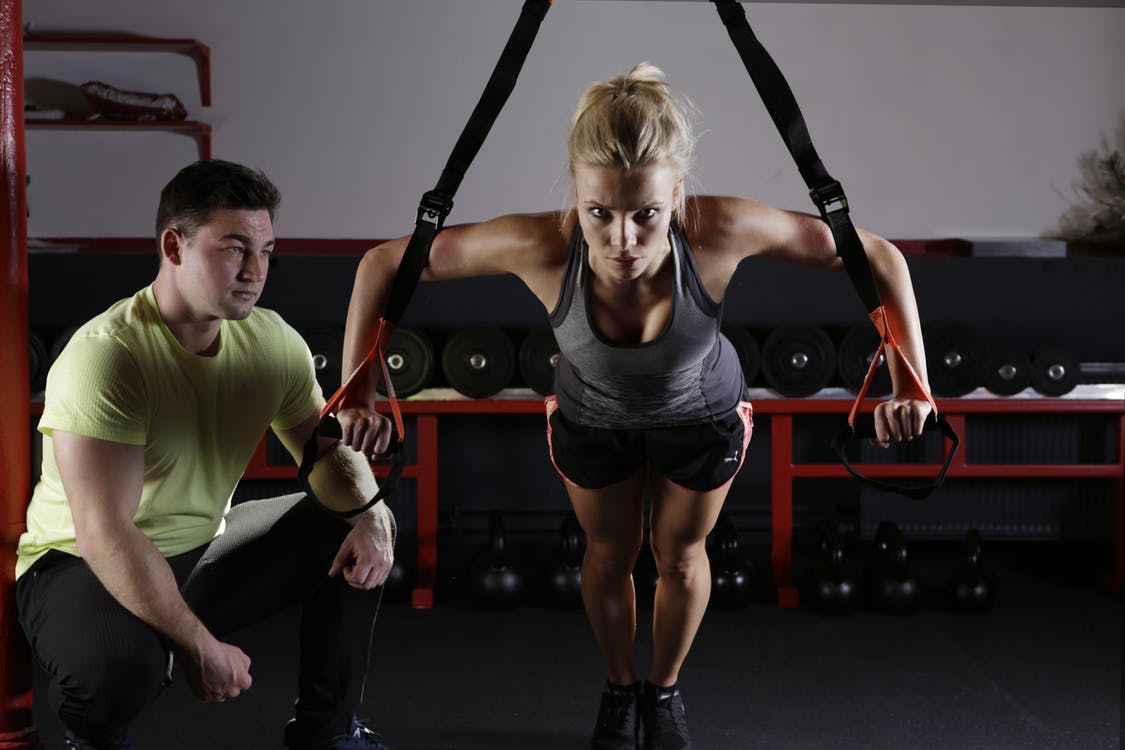Creatine
By Brittany L.
Why is creatine the number one supplement for improving exercise performance? Studies have proven time and again that creatine can increase muscle mass and strength in addition to improving cell function, and also, protect against neurological disease. It is one of the world’s most tested supplements and is beneficial for both the beginner and the elite athlete.
Creatine is found naturally in our muscle cells. It assists in supplying our muscles with energy during heavy lifting and high-intensity exercise. Approximately 95% of our bodies’ creatine is stored as phosphocreatine in our muscles, while the other 5% is found in our brain, liver, and kidneys.
Phosphocreatine is a form of stored energy in our muscle cells. It aids our body to chemically produce more adenosine triphosphate, or ATP.
ATP is our bodies’ form of energy currency. The more ATP we have, the more we increase the level of our performance during exercise. When a muscle contracts, ATP is used for energy and ADP, or adenosine diphosphate, is left as a byproduct. Phosphocreatine allows ATP to replenish in muscles during short-term, high-intensity workouts by donating a phosphate molecule to the ADP molecule as a means to reproduce another ATP molecule. This can now be used by our muscles, again, for energy.
Taking creatine as a supplement is popular amongst weightlifters and individuals looking to increase their muscle mass and athletic performance. It boosts the phosphocreatine stores in muscles, which are used to produce the primary energy source, ATP, for lifting and high-intensity exercise. In addition to providing our muscles with more fuel, creatine allows for an amplified volume of work, per training session, which is key for long-term growth. It increases cell-signaling for muscle repair, and the overall water content within our muscle cells – promoting a larger cell volume which can affect the size of those muscles. Creatine provides supplemental energy and leads to improved cellular function to add to and reinforce muscle growth.
As previously stated, our brains store phosphocreatine, and supplementing with creatine may improve many neurological diseases like Alzheimer’s, Parkinson’s, Huntington’s, Ischemic stroke, and Epilepsy. A study done on children with traumatic brain injury reported a 70% reduction in fatigue and a 50% reduction in dizziness, when creatine was used. Furthermore, vegetarians, who tend to have lower creatine levels because they do not consume meat (which is a natural food source for creatine), experienced 50% improved memory and 20% improvement in intelligence test scores, when supplementing with creatine.
The most well-researched and best form of creatine you can supplement is monohydrate. It has been studied for decades and supported every time. Many other options may be promoted and are available; however, they lack any scientific evidence or proof supporting their benefits. Creatine monohydrate is the only recommended supplement form of creatine to take.
Some people associate creatine with dehydration and cramps. It, therefore, can be cited as a side effect; however, no studies fully support this claim. Additionally, creatine is beneficial for both men and women.
Women, typically, will need a slightly lower amount of a creatine maintenance dose—approximately 3g per day, versus the approximate 5 grams per day, for men. Supplementing consistently over time, even on off-days, produces the best results, as creatine levels remain elevated in the muscle tissue. Besides increased body weight, due to increased cell water volume, there are no long-term side effects from creatine supplementation.
During a four-year tour of duty with the United States Army where she worked as a combat engineer constructing bridges, Brittany received the “Soldier of the Year” award for her unit, two consecutive years in a row–an award given to soldiers for outstanding excellence among their peers. Afterwards, she decided to pursue her passion in the health and wellness field.
Brittany is no stranger to competitive sports, as she was a collegiate athlete when she attended Eastern Connecticut State University. Being an athlete all her life, Brittany has experienced injury and has learned the vital role that proper training plays in the success of an individual’s physical performance and mental aptitude.
As a recreational supervisor’s aid, Brittany designed and instructed numerous personal training circuits that were able to be form-fitted for each individual’s needs and desires. She has trained not only athletes, but also, those individuals who seek personal training as a means to improve their health and wellness.
Intrigued by the substantial benefits of physical exercise and proper nutrition on a person’s mental stability, emotional intelligence and overall happiness, Brittany endeavored to become a certified yoga and meditation instructor. As a practitioner of high intensity workouts, she also uses her knowledge and experience as a yoga instructor to build and strengthen muscle while also toning and revitalizing.
Brittany, is in the process of obtaining additional certifications and a more in-depth knowledge of the health & wellness field to maximize her ability to help every individual achieve their own optimal health through a holistic approach. As a means to touch the lives of as many people as possible, she also speaks Spanish.






